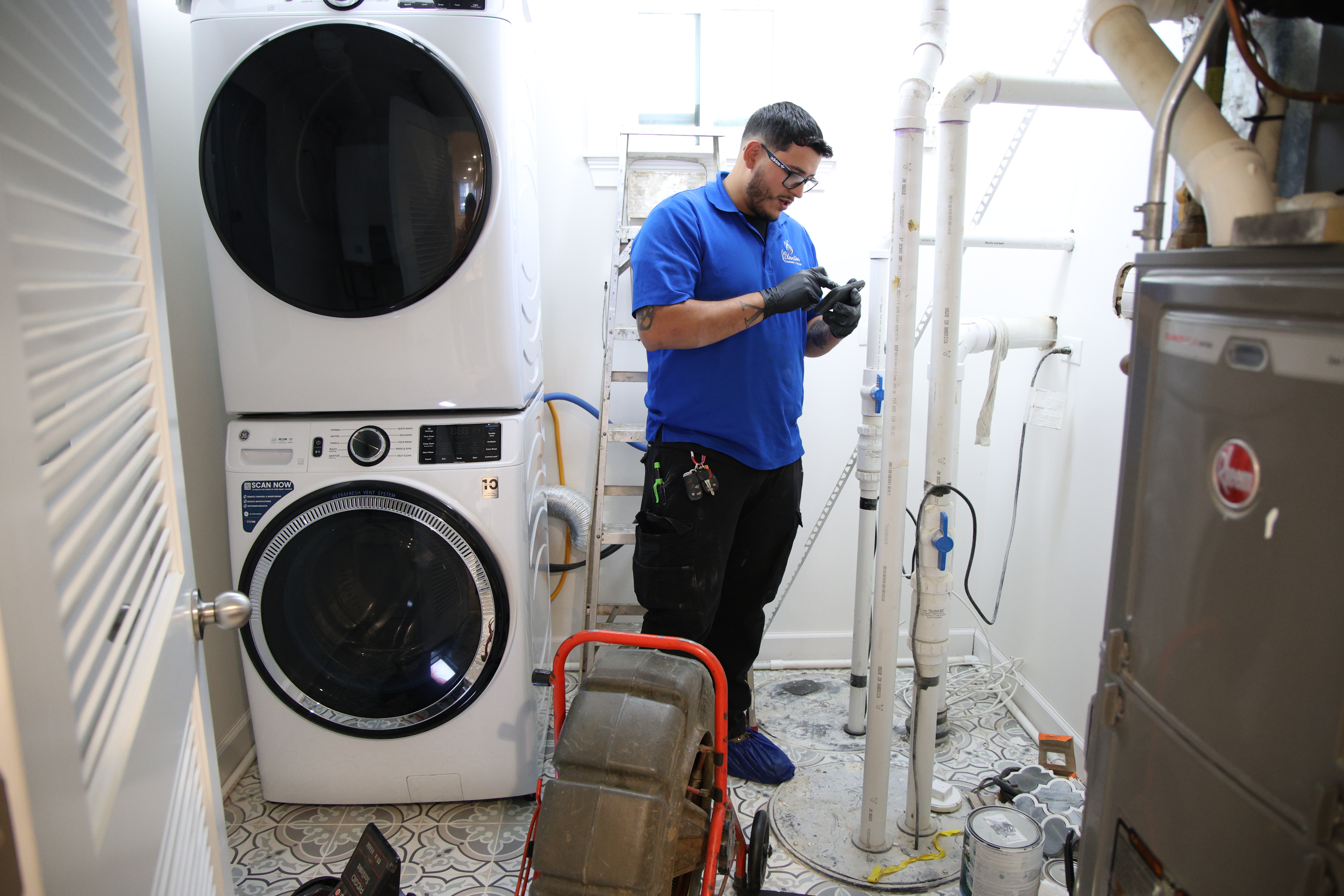Evanston, Illinois, known for its stunning architecture and lakeside beauty, also sees its fair share of cold winters and heavy rainfall—two factors that can put stress on your home’s plumbing. As a trusted plumber in Evanston, we’ve seen countless preventable emergencies turn into costly repairs. Here’s a step-by-step guide to help you prevent plumbing emergencies and keep your home safe from unexpected issues.
Step 1: Know Where Your Main Shut-Off Valve Is Located
- In the event of a burst pipe or major leak, knowing where your main water shut-off valve is located can save you from extensive water damage.
- Locate the Valve: Typically, the main shut-off valve is found in the basement or near the water meter.
- Practice Turning It Off: Make sure everyone in the household knows how to turn it off in case of an emergency.
Step 2: Inspect and Insulate Pipes Before Winter
- Evanston winters can bring sub-zero temperatures that lead to frozen pipes, a common cause of pipe bursts.
- Inspect for Vulnerable Pipes: Check for pipes in unheated areas, such as basements, garages, and attics.
- Insulate Pipes: Use foam pipe insulation or heat tape to prevent freezing and reduce the risk of burst pipes.
Step 3: Be Mindful of What Goes Down the Drains
- Many plumbing issues stem from clogs caused by materials that shouldn’t be in the drains.
- Avoid Grease in the Kitchen: Dispose of cooking grease in the trash rather than down the drain, as it solidifies and causes blockages.
- Use Drain Strainers: In bathroom sinks and showers, install strainers to catch hair and other debris that can clog pipes.
Step 4: Regularly Check for Leaks
- Even small leaks can escalate into major issues if left unattended.
- Inspect Visible Pipes: Look for any drips or moisture around pipes, faucets, and under sinks.
- Check Water Bills: A sudden spike in your water bill could indicate a hidden leak somewhere in your plumbing system.
Step 5: Maintain Your Water Heater
- A failing water heater can lead to leaks and water damage, not to mention an unexpected cold shower.
- Flush the Tank Annually: Sediment can build up in the tank, reducing efficiency and potentially leading to damage.
- Check the Temperature Setting: Keep the water heater set to around 120°F to prevent overheating and reduce energy costs.
Step 6: Invest in Routine Plumbing Inspections
- A professional inspection can catch issues that may not be immediately visible to the untrained eye.
- Schedule Annual Inspections: A yearly inspection by a professional plumber in Evanston will help identify potential issues before they turn into emergencies.
- Consider Video Inspections: For homes with older plumbing systems, a camera inspection can spot issues like root intrusion and corrosion within the pipes.
Conclusion
Preventing plumbing emergencies in Evanston is all about proactive care and regular maintenance. By following these steps, you can reduce the chances of costly repairs and protect your home from potential water damage. If you’re concerned about any issues or need expert advice, J Blanton Plumbing is here to help. Contact us today to schedule a professional inspection or for emergency plumbing assistance.











